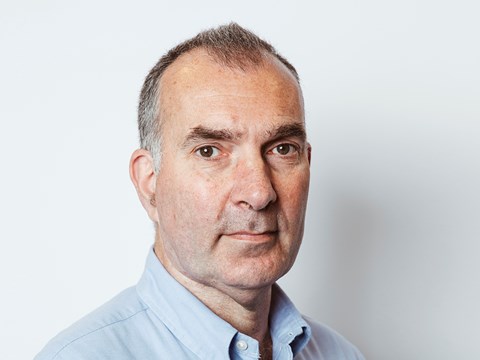Things to think about when pitching in COVID times
04 Jan 2021
After March of last year, any brand and agency involved in a pitch will most likely have undertaken it fully remotely, with no opportunity to meet in person.
And while there were a few exceptions to this in the window between lockdowns, the occasional one to one socially-distanced meeting in a coffee shop was not commonplace.
Against a backdrop of government guidelines, many agencies and client companies not expecting a return to the office in the foreseeable future and all our individual concerns, remote pitching looks here to stay, in some form, for the immediate future.
Given this, we thought a checklist of things to think about if you’re involved in a pitch would be a helpful reminder and go some way to ensuring a well-run programme for all involved.
And of course, many of the principles that were relevant pre-pandemic are equally applicable now, not least our first point.
1. Keeping our promises
Working from home has meant there’s more call on everyone’s time as home and work rub up against each other more obviously. This is particularly important to consider when the pitch timetable and agency meetings are being scheduled.
It’s a great help for everyone involved if the pitch programme and timetable can be locked in at the start of the pitch. RFI’s, briefings, chemistry meetings, check in sessions, a socially distanced walk and final pitch presentations.
Whatever the detail of a pitch programme, from the start, clarity on the shape of the pitch and absolute commitment to dates set for the different elements are critical for everyone involved.
It’s really just about keeping our promises.
This is something we insist on in AAR-managed pitches and we’ll do our best to keep our promise to stick to this.
2. To meet or not to meet, that is the question
There’s no doubt that nothing beats a brand and agency team being in the same room to assess that intangible but crucial aspect of a pitch: Chemistry. That’s not to say that chemistry can’t be achieved through video conferencing, just that it’s not quite the same.
But in a mid-pandemic pitch, the factors influencing the opportunity to meet in the same room include Government policy, company policy and individual circumstance and preference, all of which may not be aligned.
So, if meeting some or all of the agency team is part of the pitch programme in which you’re involved, this needs to be factored into your team casting and planning.
What options are open to you? Does the client want their team to meet the whole agency team? Are they happy to meet with just the agency’s senior leadership or would they prefer to meet just with the account lead?
And where to meet? At the agency or client offices? Are either open to external visitors? Or a neutral socially distanced coffee shop, hotel or walk in the park? All of this is dependent on the class of lockdown and whatever tier you may be in.
I don’t think it’s about treating every pitching agency in exactly the same way but about being fair to all agencies and recognising that this may mean different methods of engagement with different agencies. Perhaps it should be the lowest common factor that determines a COVID pitch programme. For instance, if one agency can’t meet in person then there are no in person meetings with any competing agency.
In the ambiguous circumstances in which we find ourselves, common sense and gut feel can be the defining determinant as to what’s the right thing to do.
3. Video conference etiquette
We’ve probably read and heard more about VC etiquette, or lack of it, than most other aspects of how business has been conducted remotely over the last few months. We’ve collated our 10 top tips for a great VC experience that we hope you find useful for the pitches in which you’re involved, or indeed any other VC session.
i) Does the agency have a preferred video conferencing platform and rules of engagement? If so, let the client know before the meeting:
- Video and audio on or off?
- Chat facility?
- Q&A in the chat or verbal?
- Q&A throughout or at the end?
- What if someone needs to answer the door/speak to a family member in my home/take a bathroom break?
ii) Before the meeting starts, why not put all the clients in a private virtual meeting room where they can catch up and chat before all joining the meeting at the same time? Think of it like the virtual coffee shop they’d meet before going into the agency.
iii) Seeing your name in your picture tile is good; seeing what you do is better! Remember clients will be meeting your team alongside others and they’ll appreciate if you can help them to remember not just who you are but what you do.
iv) If there’s the chance of an in-person get together, try and take it. It may be just one on one, in a coffee shop or an out of town socially distanced walk in the park. There’s universal recognition that something is missing and less impactful in a completely remote pitch which no amount of screen time can replace.
v) Smaller, tighter pitch teams tell a better story. This is exaggerated in video pitching so you might want to manage expectation by letting your prospective clients know that it’s not the whole team that they are going to be meeting.
vi) No one ever said ‘There weren’t enough slides in that presentation’. Ever! The best agencies are cutting down on the number of slides in favour of encouraging more discussion. So, think about this at every engagement with the client team throughout the pitch. Isn’t a conversation always preferable to a presentation?
vii) The charisma of an agency’s senior leaders does not carry a pitch team in the same way that can happen in person as the VC format reduces their impact. Therefore, it’s important that your team exudes confidence and passion across the board.
viii) It’s never been about pitch theatre and in video pitching, the people, thinking and work are all there is to focus on. So, the better the ideas and work, the greater the chance of success.
ix) Once you’ve made your presentation, put the clients back in their virtual private meeting room so they can discuss what you have just presented amongst themselves before coming back with comments and questions. That way, they are more likely to offer more considered feedback and they’ll appreciate that you have given them that opportunity.
x) A recording of video conference meetings is a useful reminder, particularly the final pitch presentations, and time signposts are even more helpful e.g. strategy minutes 5 to 12, creative minutes 13 to 20, research testing minutes 21 to 24. Recordings are also useful for members of the client team that were unable to attend the live session.
4. It’s OK to be different
During the first lockdown in March, the market’s reaction when it came to pitching was to try to replicate exactly what we had done in pre-COVID times.
Some of these pitch practices and behaviours translated more easily than others. For instance, it was very easy to continue with all-agency pitch briefing sessions, to ensure every competing agency heard the same brief rather than individual briefings in which there’s always a danger of pitch brief fatigue. Indeed, the technology allows for as many people from the agency team to attend the briefing as would want to, rather than being limited by the size of the room and number of chairs available.
But other aspects of a lockdown pitch have proven to be effective in a way that wasn’t anticipated.
There’s been much greater openness by clients to a 10-15 minute catch up, two or three times with each agency between briefing and final presentation than there ever was pre-COVID. This has the added benefit of getting to know each other a little more with each engagement and building that all-important chemistry.
So, it’s OK to try to do things differently and not simply replicate a pitch programme from pre-pandemic times.
In summary
Hopefully some if this will prove useful when pitching and having to navigate the challenges of remote working in a partial or full lockdown
About The Author




